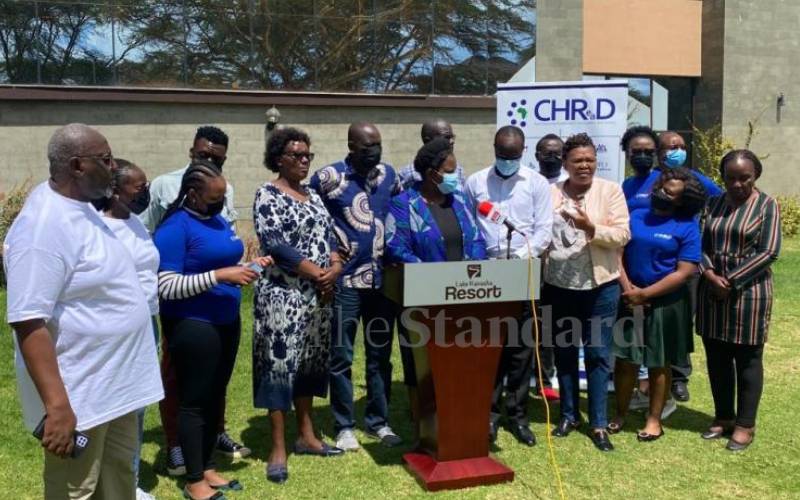×
The Standard e-Paper
Join Thousands Daily

Members of the Coalition for Health Research and Development (CHReaD). December 19, 2021. [Mercy Kahenda, Standard]
The government has been asked to include civil society in the new Kenya Biovax Institute Board in a bid to revamp Covid-19 vaccines.